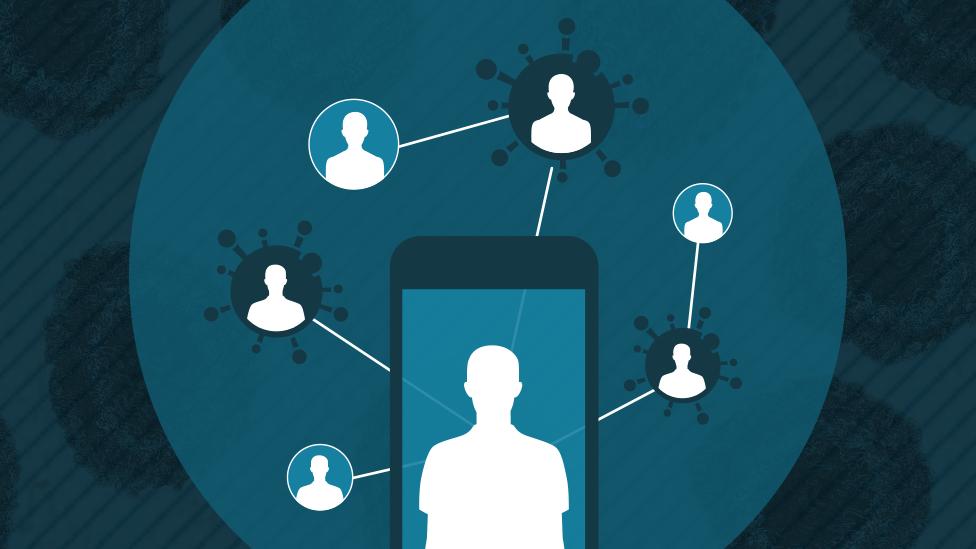Coronavirus contact tracing: My new skill
- Published
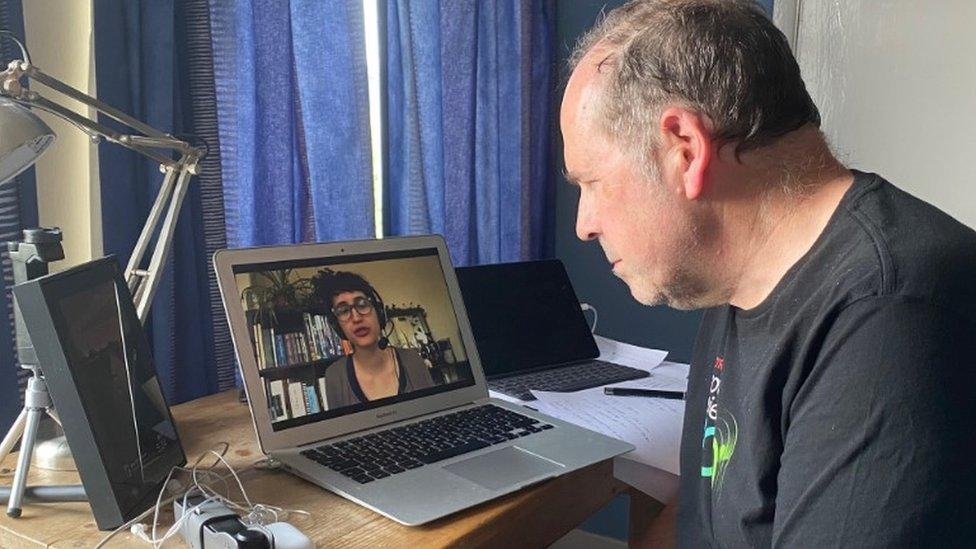
It could be the most important job of our times. And now, after receiving a 95% pass rate in my final exam, I can proudly say, I am a qualified contact tracer.
What is not clear is just how well trained most of the people undertaking this vital task in the UK will be.
A contact tracer does the detective work of calling up people known to be infected with a disease and working out where they have been in recent days and who they might have met.
The idea is then to track down those with whom they have been in close proximity and tell them to go into quarantine.
With the government recruiting 25,000 contact tracers to be at the heart of its new test, track and trace strategy, we wanted to experience the sort of training they will receive.
Public Health England told us that was not possible - so instead I enrolled in the course offered by America's Johns Hopkins University, in conjunction with the online training platform Coursera.
The course, which tens of thousands of people have taken, consists of a series of video lectures and multiple choice quizzes.
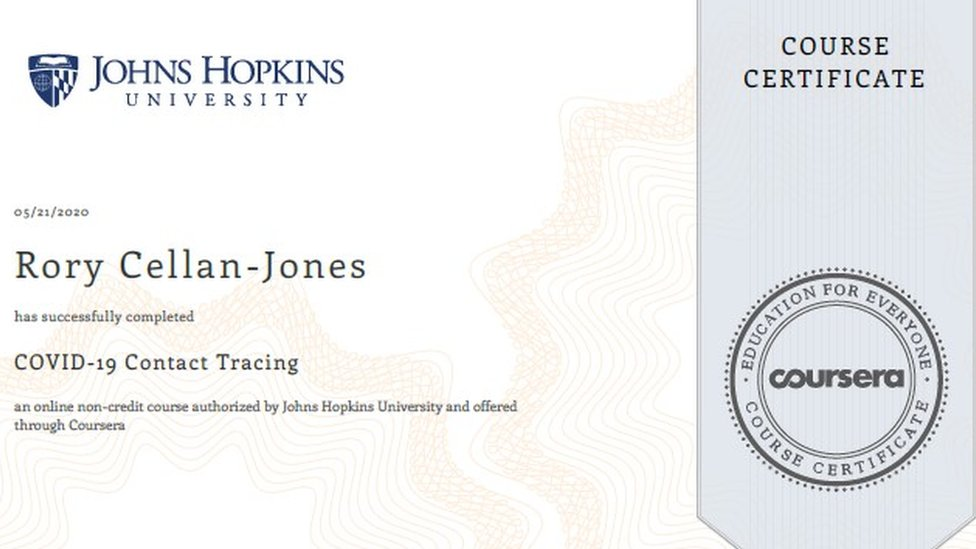
It took me an intense eight hours to complete and I emerged with enormous respect for the discipline.
As the lecturer put it on the very last page: "contact tracing is a complex activity which requires attention to detail and problem-solving skills".
You bet it does.
What became clear, is that although technology such as the Bluetooth apps being tested around the world can help, human skills are vital.
The final section - which took me two hours to complete - is all about how you talk effectively to the people you are trying to help.
So, what did I learn?
Lessons learned
I know much more about the signs and symptoms of the disease - for example, that a loss of taste and smell is reported by around a third of all patients, despite the UK only just adding this to the recognised list of symptoms.
I have learned that of all the places where the disease can spread most easily, care homes, where vulnerable people are in close contact, are right at the top of the list.
I now know more about the difference between isolation and quarantine - although the US and UK guidelines are not the same.

But the key message is how small the window is to alert people who may have been in contact with the infection, before they spread it further - and so how swiftly contact tracers need to act.
The slide below tells the story:
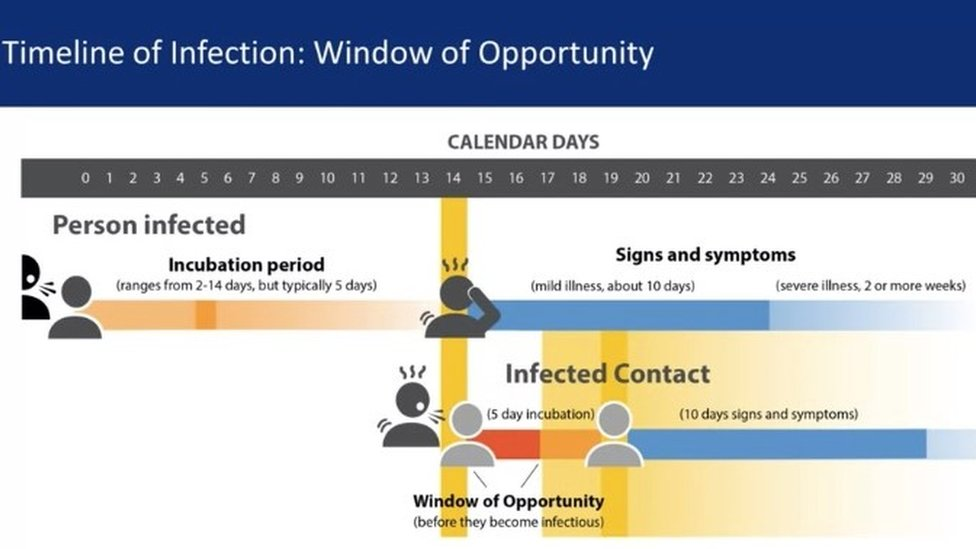
Once someone has been in contact with an infected person, there are five days of incubation before they themselves may become infectious - so it is vital that they receive a warning as quickly as possible.
Stephanie Hare, a data ethicist who also took the course, says the other lesson the UK could learn is how important speedy testing is.
"Unfortunately, the United Kingdom does not have a testing capability that would allow our population at scale to report symptoms on the first day we experience them, get tested, and get the result back within 24 hours," she said.
Communication
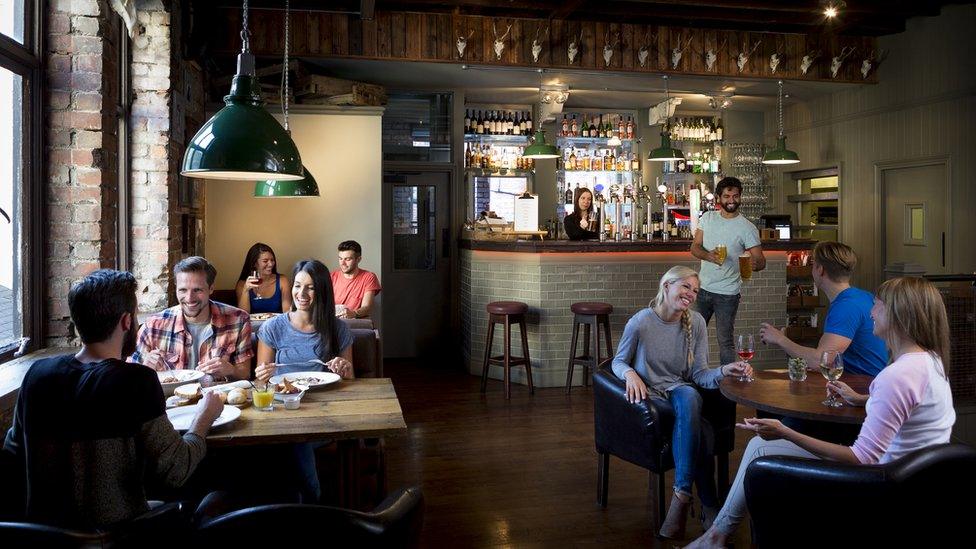
Can you tell your friends if you find out that someone with the virus was in their favourite bar?
Having learned a lot about Covid-19 and the principles of contact tracing, the course then took me through the process of making a call to someone who had either received a positive test or been in contact with someone infected with the virus.
There was great stress on the importance of communicating clearly, but also on establishing a rapport with people receiving worrying news.
Much of the teaching came in the form of dramatised phone calls.
We met poor Larry with the hacking cough and then Annette, the choir member he had probably infected.
We admired the empathy shown by tracer Amy - "I hear you, this is a difficult time" - while chuckling at the brusque ineptitude of her colleague Drew, who kept interrupting and upsetting Larry and Annette.
Ethics
Any contact tracers employed in the UK will be dealing with some very sensitive information, often working from home on their own computers.
The Johns Hopkins course outlines the ethical challenges involved in contact tracing.
The quiz at the end of the section featured some easy questions: if your subject tells you that one of his recent contacts was his girlfriend, should you tell his wife? Err, no.
But what about the contact telling you she had spent a lot of time in a pub where you know your friends and family hang out?
You cannot tell them they may be in danger, said the instructor.
Technology
While this course is about old-fashioned manual contact tracing - the technique used to combat the Ebola outbreak and other epidemics - it does also run through some of the technology tools which could help.
These include the Bluetooth contact tracing apps currently being developed in a number of countries, including the UK.
Given the small window available to trace contacts, it says automating the process could make it faster and more effective. But there is also a warning that such apps need high take-up to be effective - and should be integrated with the testing and public health systems, meaning contacts get calls from a human tracer as well as pings on their phones.
So for all the talk about privacy being baked into apps, users could still end up getting a call from a tracer asking some deeply personal questions.
Overall, the course gives a detailed and inspiring but also realistic view of what contact tracing can achieve.
In normal circumstances, out of lockdown, someone with Covid-19 will infect between two and three other people.
If that can be reduced to just one person then the epidemic could be brought under control.
How does it compare with the UK?
There have been reports that the training process for new contact tracers in the UK is pretty sketchy - a few PowerPoint slides and some scripts for callers to follow.
Isabel Oliver, who is overseeing the contact tracing programme for Public Health England, told me she was not familiar with the Johns Hopkins course but was happy with how recruits here were being trained.
"Our training is based on the requirements for our own programme," she said.
"We're very confident that we've got a good and robust system in place. It's been tried and tested."
Originally the government indicated that the Bluetooth contact tracing app currently being tested on the Isle of Wight would be key to efforts to control the virus once lockdown was eased.
Now it is clear that an army of human contact tracers will be first into battle, so the quality of their training will be crucial.
- Published5 May 2020
- Published4 May 2020
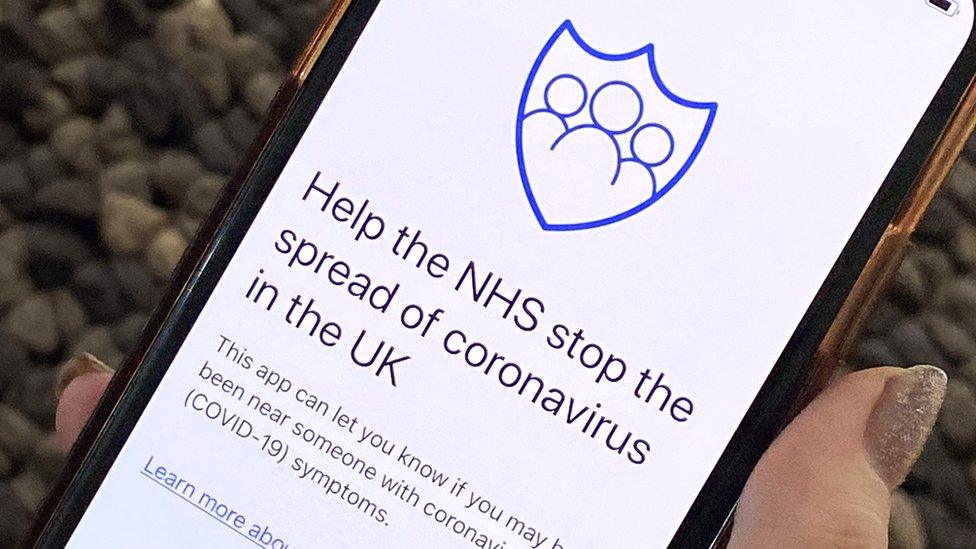
- Published5 August 2021
